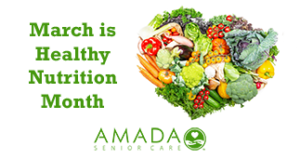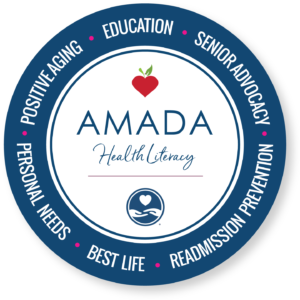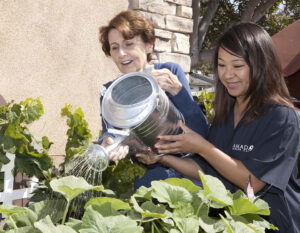
The road to healthy aging means so many things. Diet, exercise, social groups, continuing education, favorite hobbies, community involvement — what doesn’t it mean? Where nutrition is concerned, getting it right is essential. This is something true at any age and particularly as older adults and seniors move into a time when the onset of chronic conditions and/or illnesses is a fact of life.
Seniors tend to eat less and choose different foods as they continue to age. While it is true that metabolism slows, the continuous need for nutrients does not. Taste buds aren’t as potent, dental problems may appear, or difficulty swallowing may occur as saliva thins (dry mouth) or esophageal problems present themselves. Inactivity and medications can also alter food intake, but it’s important to keep healthy eating at the top of the agenda.
Why Good Nutrition Matters for Senior Health
Decreased food intake among the elderly has been associated with lower intakes of necessary calcium, iron, zinc, B vitamins, and vitamin E. But studies show that prioritizing proper nutrition can help heal, control, reduce the risk of, or even entirely prevent diseases that afflict many seniors. If there are recommended foods you are unable to eat, your health provider may be able to offer alternatives.
8 Tips for Boosting Senior Nutrition
These tips can help make nutrition and meal planning healthy and interesting!
- Enjoy a variety of foods from each food group to help reduce the risk of developing diseases such as high blood pressure, diabetes, and heart disease. Choose foods with little to no added sugar, saturated fats, and sodium.
- To get enough protein throughout the day and maintain muscle, try adding seafood, dairy, or fortified soy products along with beans, peas, and lentils to your meals. Learn more about

Click above to learn about Senior Health Literacy and positive aging. - Add sliced or chopped fruits and vegetables to meals and snacks. Look for pre-cut varieties if slicing and chopping are a challenge.
- Try foods fortified with vitamin B12, such as some cereals, or talk to your doctor about taking a B12 supplement. Learn more about key vitamins and minerals.
- Reduce sodium intake by seasoning foods with herbs and citrus such as lemon juice.
- Drink plenty of water throughout the day to help stay hydrated and aid in the digestion of food and absorption of nutrients. Avoid sugary drinks.
- Limit alcohol consumption. Whatever your age, young or older, too much alcohol fills you up with “empty calories” and impedes the ability to make nutritious choices.
- Make it easy! Use these guidelines to learn what a healthy plate looks like.
Remember to Involve Your Health Provider
It’s recommended that seniors consult first with their doctor, nutritionist or other health professional before starting a new dietary regimen or fitness program. Taking this step will help to ensure that you don’t have a health condition that could make a new diet or physical activity dangerous for you. If you’d like to learn more about having the help of a trained caregiver for meal preparation or exercise assistance, please don’t hesitate to speak with an Amada Senior Care advisor. Click here to find an Amada Senior Care location near you.
“8 Healthy Nutrition Tips for Seniors,” written by Beth Herman, Amada blog contributor.















